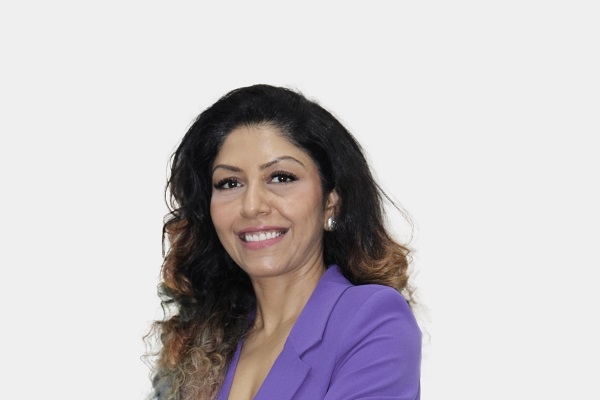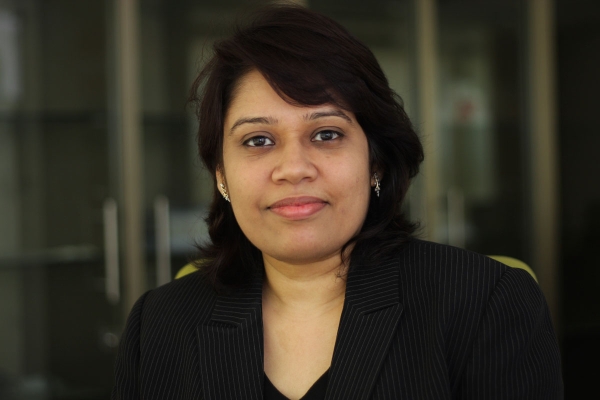The “Global Women’s Breakfast 2021” event organised by the International Union of Pure and Applied Chemistry (IUPAC) in collaboration with Bayer, convened virtually on February 9, 2021, under the theme, ‘Empowering Diversity in Science,’ in a prelude to the United Nations Day of Women and Girls in Science.
In its fourth edition, the “Global Women’s Breakfast” creates a platform for women in science to come together and meaningfully connect while addressing barriers and inequalities faced within the scientific community. Bayer hosted this virtual panel of eminent women scientists to celebrate this occasion.
The panel featured Dr. Shailja Gupta, Senior Advisor, Office of the Principal Scientific Adviser to the Government of India, Dr. Usha Barwale Zehr, Director, and Chief Technology Officer, Mahyco, India, Professor Rohini Godbole, Indian physicist, academic, and Padma Shri recipient, Dr. Zeba Seraj, Professor of Biochemistry and Molecular Biology, University of Dhaka, Bangladesh and Dr. Vidya K, Head of Product Development- APAC Breeding, Bayer. Moderated by Dr. Arun Kumar, Head, Environmental Science, Bayer South Asia, the event was attended by a wide range of stakeholders.
The panel explored the value of diversity in science, highlighting pervasive challenges unique to women in science and the role of institutions, policies, and personal support structures in enabling and empowering women in their scientific pursuits.
Key Highlights
The Value of Diversity in Science
Professor Rohini Godbole, Indian physicist, Academic, and Padma Shri recipient noted, “Diversity encompasses inclusion and equity. It is the cornerstone of scientific advancement and progress, as diverse inputs can significantly add value to the field as well as bring new dimensions for investigations into the unknown.” She added, “We need to develop a mindset that just as science is important to women, equally, women are important to science.”
Commenting on the value of diversity in teams, Dr. Usha Barwale Zehr, Director, and Chief Technology Officer, Mahyco, India said, “Diversity fosters excellence in teams, ensures women and their unique needs are represented in decision-making and in this way, significantly reduces bias. Moreover, it ensures problems are approached from different angles.”
Challenges of Women in Science
Dr. Zeba Seraj, Professor of Biochemistry and Molecular Biology, University of Dhaka, Bangladesh, commented, “The discrepancies in expectations from men and women pave the way for inequity, and harmful stereotypes perpetuate such gaps, which need to be discouraged.” Discussing how such challenges can be addressed, she added, “Creating opportunities for women to be role models and mentors and encouraging parents and teachers to treat their kids equally can be steps taken to address this challenge.” Another challenge for women in science lies in childbearing. Women who take career breaks for this purpose can feel inadequately supported or motivated to return to work.
The panelists highlighted the need for the provision of adequate childcare services and government intervention in establishing this at local and state levels. Simultaneously, they elaborated on the broader challenge of cultural mindsets that need to shift, ensuring child-rearing responsibilities do not primarily fall on women and are to be taken on equally by both parents.
Dr. Vidya K, Head of Product Development- APAC Breeding, Bayer commented on the importance of networks and role models, “Professional networking can be difficult for women and thus act as a barrier to advocacy. An additional challenge in the industry is the low proportion of women leaders who can serve as role models.”
Do you think hybrid work arrangements would be a common feature of the workplaces going forward?
Trending
-
SBI General Insurance Launches Digital Health Campaign
-
CredR Rolls Out 'Life Happens' Leave For Its Employees
-
Meesho Announces 30-Week Gender-Neutral Parental Leave Policy
-
Microsoft Unveils Tech Resilience Curriculum To Foster An Inclusive Future
-
60% Indian Professionals Looking For Job Change Due To COVID: Survey
-
SpringPeople And Siemens Collaborate For Digital Transformation Push
-
86% Professionals Believe Hybrid Work Is Essential For Work Life Balance: Report
-
Almost 1 In Every 3 People's Personal Life Affected Due To Work Stress
-
Meesho Rolls Out Reset And Recharge Policy For Employees
-
80% Of Talent Leaders & Academics Say Pandemic Changed Skill Needs For Youth: Report
-
Hero Electric Rolls Out 'Hero Care' Program For Employees
-
Human Capital In Collaboration With ASSOCHAM Hosts Virtual Conference
-
IKEA India, Tata STRIVE Collaborate To Create Employability And Entrepreneurship Opportunities
-
SAP India, Microsoft Launch Tech Skilling Program for Young Women
-
DXC Technology, NASSCOM Collaborate For Employability Skills Program
-
Lenskart To Hire Over 2000 Employees Across India By 2022
-
Mindtree Launches Learn-and-Earn Program
-
Tata AIA Extends 'Raksha Ka Teeka' To Its Employees
-
Swadesh Behera Is The New CPO Of Titan
-
NetConnect Global Plans To Recruit 5000 Tech Professionals In India
-
Hubhopper Plans To Hire 60% Of Indian Podcasters By 2022
-
Corporate India Needs More Women In Leadership Roles: Report
-
Aon to Invest $30 Million and Create 10,000 Apprenticeships by 2030
-
Tech Mahindra Launches ‘Gift a Career’ Initiative for Upskilling of Youth
-
40% Women Prefer Flexible Working Options in Post-COVID World: Survey
-
3 out of 4 companies believe they can effectively hire employees virtually: Report
-
Vodafone , CGI and NASSCOM Foundation launch digital skills platform
-
Odisha: Bank, postal employees to deliver cash for elderly, differently-abled persons
-
Skill India launches AI-based digital platform for "Skilled Workforce"
-
Hiring activity declines 6.73% in first quarter: Survey
-
70% startups impacted by COVID-19 pandemic
-
Bajaj Allianz Life ropes in Santanu Banerjee as CHRO
-
Over 70 Percent MSMEs look at cutting jobs to sustain businesses
-
93 Per Cent employees stressed about returning to office post-lockdown
-
Johnson & Johnson India announces family benefits for same gender partners
-
Indian firms turning friendly towards working mothers
-
Welspun India names Rajendra Mehta as new CHRO
-
Wipro partners with NASSCOM to launch Future Skills platform



Human Capital is niche media organisation for HR and Corporate. Our aim is to create an outstanding user experience for all our clients, readers, employers and employees through inspiring, industry-leading content pieces in the form of case studies, analysis, expert reports, authored articles and blogs. We cover topics such as talent acquisition, learning and development, diversity and inclusion, leadership, compensation, recruitment and many more.
Subscribe Now











































Comment